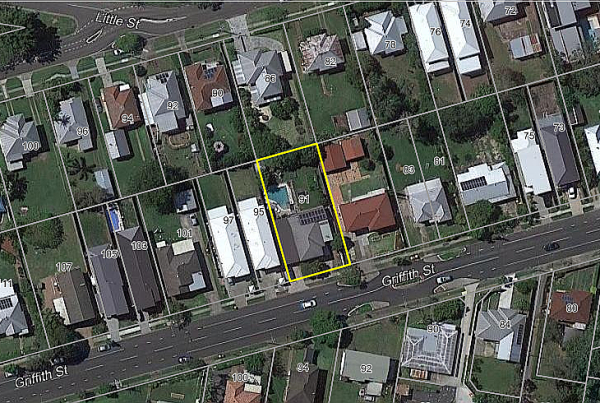As a local real estate agent, we are fortunate to be able to talk with a lot of people every day.
The topic of conversation that is most often discussed at the moment is about rising mortgage interest rates. Especially what will happen when a fixed rate loan (at a low rate) expires?
In 2020 and 2021, many borrowers in Australia locked in low-interest fixed rate home loans due to the historically low cash rate. However, the fixed rate period of most loans is typically between 1 and 3 years, and as a result, borrowers who took out these loans may be fast approaching the end of their fixed term.
If they let their fixed rate home loan expire without taking any action, it will revert to a variable rate that the lender offers, which could be much higher than other variable interest rates on the market. As of today the big four banks have variable loan rates around the 6.24% range. This is a massive increase on the fixed rates that may have been as low as 2.00%.
This means monthly mortgage payments of many hundreds or even thousands of dollars extra each month. This is what is starting to scare some people.
This is being referred to as the “Mortgage Cliff” in the media.
To avoid this, it is wise to start preparing for the end of your fixed term a month or two before it expires by speaking to your bank or broker and beginning the refinancing process. This will improve your chances of getting a better home loan deal and more competitive interest rate.
The other factor that is causing people to worry is house prices are falling as demand has dropped and uncertainty increased. So mortgage payments increasing and property prices falling has meant a very different situation than what was expected for many property owners.
There are some things to consider about your mortgage.
Unfortunately, higher repayments will be largely unavoidable as interest rates are much higher than they were even just a year ago.
These are some questions you might want to ask yourself:
- Are you more comfortable with the stability of a fixed-rate home loan or is it too restrictive?
- Are you looking for a home loan that allows you to make unlimited additional repayments?
- Would you like to know exactly how much your monthly home loan payment will be every month?
- Are you ready to deal with fluctuating interest rates?
- Are you looking for home loan features like an offset account, redraw facility or a redraw facility
- Are you looking for the freedom to refinance at any moment?
- Are you satisfied with the service your current lender provides?
The answer to these questions will help you decide what type of loan you will need going forward.
Preparing for higher mortgage repayments after your fixed rate ends
If you still have the luxury of a fixed rate loan that has a little while left to go, then you might look at ways that you can start to prepare for the time when you will be required to pay more for you mortgage.
1. Review your budget
Regularly reviewing your household budget is a smart idea.
You’ll need to find ways to save money to offset future rising repayments.
It may not be possible for everyone, but it is likely you have expenses that can be cut to make it easier for your mortgage payments.
Perhaps it is taking public transport to work rather than driving, and not having to pay petrol prices. Maybe it is cutting down on online shopping. You might be able to follow YouTube workouts for a while, so you can cancel your expensive gym membership.
You have many creative options to save money. You might also be able negotiate with your insurance and utility providers. You could also switch providers to get better rates elsewhere.
2. Shop around for lenders. Do your homework.
After your fixed rate ends, you are not required to stay with your original lender.
Don’t hesitate to change lenders if you’re unhappy with your lender. Compare the rates of your existing lender to other lenders, and consider whether switching is worth it. Sometimes there are deals to get you to switch across as well.
3. Ask for help from an expert
A mortgage broker is a great option if you aren’t interested in doing the research on your home loan. If you decide to refinance or settle your home loan, they will be available to help you.
4. You can make additional repayments prior to your fixed rate expires
If possible, it can make sense to pay off more off your home loan before the interest rate goes up.
Although fixed-rate loans usually do not allow unlimited additional repayments, lenders may allow you to make extra payments up to a specific amount. They may place limitations on how much additional repayments borrowers are allowed to make on home loans at fixed rates (e.g 10,000 per year).
Extra repayments may not be allowed by some lenders. It’s worth looking into this. You can save money by reducing your home loan balance prior to your interest rates rising. This will allow you to build a buffer for your loan. You can also get into the routine of putting more into the mortgage every month.
5. Increase your income
You might be concerned about your ability pay higher monthly repayments after your fixed rate ends. It is worth looking at ways to make more income.
Ask your boss to raise the salary. As justification, you can mention positive results, rising costs of living, and the time spent at work.
It is possible to start another job, or a side hustle.
6. Save your money in a savings account with high interest rates
Rising interest rates can help you grow your savings more quickly. You’ll end up with more money if you put your extra funds in a high-interest savings account.
Although it might not be significant, each dollar is important when you realise that your payments will increase in the near future.
7. You might consider opening an offset account
You could also put your savings in an offset account as an option to saving money with high interest rates. A transactional savings account that is linked to your loan balance can be called an offset account.
You can offset the interest that you have to pay by having funds in your savings account. You could see a significant reduction in the interest you pay.
If you have $500,000 in home loans and $100,000 in offset accounts, interest will only be charged on the $400,000.
Although you may be restricted from opening a 100% offset account with a fixed-rate mortgage, they are an option on most variable rate mortgages.
What if I want to sell my house?
In some circumstances selling your property may work out to be the best way to move forward for some people.
Whether it is a family home or an investment property, it is still a very difficult decision, but one that many people end up having to make.
This is a time to get good quality advice (just like with your mortgage, quality real estate advice can save you a lot of money).
If you are considering this option, then speaking with Justin Hicks should be your first step.
He can advise you about what exactly is happening in the market place at the moment and the best ways to move forward. Getting the marketing, presentation and timing of your sale right can result in tens of thousands of dollars in extra sale price.
The end of a low fixed rate loan can be a difficult time for most people, preparing before hand and seeking good quality advice can help to ensure that you come through this experience in good shape.
House prices are on the move. Find out the value of your property now.
Get a free online property report from Hicks Real Estate. It takes seconds.






